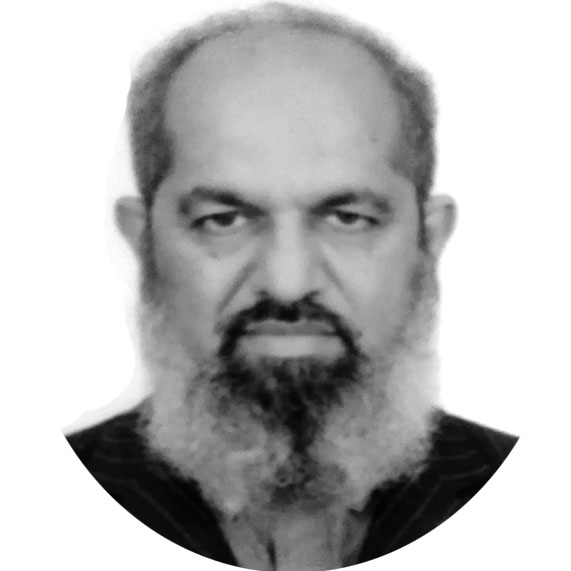Mohammad Sohail Ahmed
GOVERNMENT has repeatedly highlighted the requirement of bureaucratic reforms as it has found hurdles and obstacles in implementation of government decisions for quick results. It has also mentioned that the civil servants organizational restructuring is required as per the dictates of modern times. The need to review an established system arises when it is discovered that it has become redundant and unable to deliver. Is it true that the existing system is redundant? The recent book of Irtiqa Zaidi,” Negotiating the power corridors” is an excellent example to understand about how bureaucrats are required to work in our socio-cultural environment both nationally and internationally while keeping the national interest as supreme. Therefore any individual who desires an insight to the working of bureaucracy needs to read this autobiography. Any person, who happens to go through auto-biography of a professional or renowned person, is bound to learn the salient features of personal qualities of that luminary. It also gives an insight to the dynamics of the organization in which the renowned personality spent his life making struggles to achieve its objectives using professional acumen.
What is the requirement to run the government successfully? Is it the professional competence and excellence or integrity of the individual which determines the success of a ministry? The answer is that both integrity and professional excellence are absolutely essential qualities. This book brings out that if one has to prioritize these two traits, the foremost is the honesty followed by professional excellence. The old adage, ‘honesty is the best policy’ has been repeatedly proven in this book. For an organization to be effective the priority trait for leader and followers is likely to raise it to heights of excellence. The reforms in the system should be directed in selecting and promoting such honest officers. Who should choose to be a public servant as career? The pre-Islamic culture of tribal origin distributed the portfolio to various tribes for example Banu Khuzaima, the tribe of Hazrat Khalid Bin Walid (RA) were into manufacturing of weapons such as swords and arrows. The second caliph Hazrat Umar (RA) belonged to Banu Adi (Quraish) who used to perform the task of ambassadorship or diplomacy.
In later time, during the rule of Banu Abbas, the focus was on acquiring ILM (learning and teaching) and most of the population was focused on Administration and learning, the Turks were required to be inducted in regular Armed Forces. However this model led to greater influence of Turks on the Caliph. Today, our Nation has a lot of emphasis on medicine and engineering as we have witnessed in the last 50 years. Therefore, we need to analyze the trend of the society to create a check and balance. Irtiqa Zaidi hailed from a middle class and could not afford education beyond matriculation in a renowned institution. It was the government policy to attract talented students towards agriculture sector which paved his way towards research work for Agriculture University of Tando Jam. This being the first research work of its kind and got appreciation from President Ayyub Khan.
Despite recommendations, to send him abroad on scholarship, the system failed to do so but this did not discourage young Zaidi to perform relentlessly hard work. This brings out the importance of selflessness and devotion for a public servant to enable him continuously uninterrupted despite temporary set-backs or discouragement. Another interesting aspect of his life as senior officer draws our attention toward his vision of finding opportunities from challenges. He was diagnosed prostate cancer at initial stage and was required to go on leave for radio therapy for more than three months in USA. During this period he availed the opportunity to record salient social, political and professional episodes of his career. The common denominator during all these eventful happening was that he kept his nerves cool and sense of humour alive. This is also another important leadership quality that is required from a talented civil servant aspiring go rise in the service.
During the service, posting in remote areas is a challenge and to adopt according to the new environment is a concomitant requirement for the official to work for the government. During his stay at D I Khan he went to hire a house for his stay. However, one of his friends from that area, told him to shift to another house. When the author showed reluctance in shifting the ‘friend’ used some people to throw bricks into his rented house at night to scare him. Therefore he immediately vacated the house to shift to the recommended residence. Later on, the servant of his ‘friend’ disclosed that the bricks were thrown on the directions of his ‘friend’ to get immediate shifting materialized. The author continued his mission without getting into a row on this matter. It brings out that a true public servant is loyal to his cause and does not bother about his own self or ego. Such selfless, magnanimous and open minded individuals have been the hallmark of our bureaucracy which has been running the country for the last 72 years.
The book brings out beneficial lessons for aspiring civil servants, public office bearers and citizens from private sector. Even businessmen would also get an insight to the complex conundrum of decision making which involves stakeholders having diverse interests, and benefits. It is in the end the public servant who should resolve the issues in a manner acceptable to the stakeholders and above all in the best interest of the State. If the Government decides to bring reforms in the civil bureaucracy, a Task Force should be formed and given this book in addition to find out challenges and explore responses through systematic and progressive reforms implementation committee.
—The author is a freelance writer and Retired commodore of Pakistan Navy.









